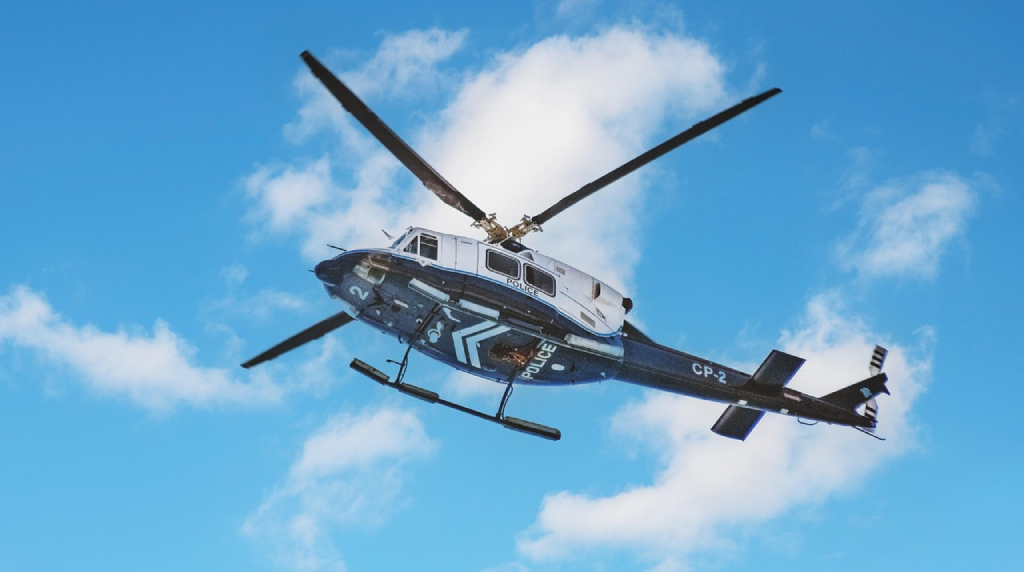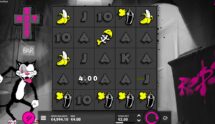The Raid at La Catedral: When Gambling and Immigration Collided
What began as a sunny Sunday horse race at a rural Idaho arena ended in panic, with helicopters circling overhead, crowds scattering, and children zipped up on the ground as federal agents stormed the venue.

Federal helicoptors were used in raid at La Catedral. © dimitrisvetsikas1969, Pixabay
Key Facts:
- FBI and ICE raided La Catedral Arena in Wilder, Idaho, on October 19, 2025.
- 105 people were detained, with witnesses saying children were zip-tied.
- Five individuals face federal charges tied to unlicensed horse-race betting.
- The incident reignited debate over ICE tactics and gambling enforcement.
It was supposed to be a Sunday of celebration. Families filled the stands at La Catedral Arena, a patch of farmland west of Boise where migrant workers and local horse owners often gather for racing, food, and music. Then came the helicopters.
Witnesses all say the raid happened quickly. Over 200 heavily armed agents from local, state and federal agencies, including the FBI, DHS, ICE and the DEA, conducted a military-style raid which ended with them firing rubber bullets at unarmed civilians.
Around 500 to 1000 people were initially detained, including many children, and once the dust had settled and papers had been checked, over 105 people remained in custody. What began as a gambling investigation quickly became yet another flash point in America’s ever-spiralling immigration enforcement debate.
How a Local Racetrack Became a Federal Target
For years, people knew La Catedral Arena as a cultural gathering place. Its owners held weekend races and food festivals under a conditional county permit. It did not differ from many other migrant gathering spots all over the Southwest and West.
But to locals and federal agents, it was believed to be an unlicensed parimutuel gambling hub. The noose began to tighten after a tip to the FBI in February about quiniela bets, a popular Latin American bet on picking first and second place.
Court filings would reveal that organizers were receiving Venmo and Zelle payments from bettors, sometimes many thousands of dollars at a time.
The Bookmaker and His Couriers
The federal complaint lists Samuel Bejarno as book bookmaker. He allegedly managed betting sheets, posted odds on Facebook, and tracked results in spreadsheets that he would share with his co-conspirators.
His wife, Dayana Fajardo, allegedly helped collect wagers, while Cesar Orozco and Alejandro Estrada reputedly were couriers carrying backpacks of cash around the arena. The feds insist that property owner Ivan Tellez was also involved.
Investigators watched hand to hand transactions and online payments for months before the raid. The affidavit describes “a pattern of wagers, deposits, and payouts consistent with an organized gambling business”.
While it might have seemed all very rural and small town, the paper trail shows a sophisticated betting ring using smartphones and Facebook Live that often deposited over $100,000 after a race weekend.
Full Force
At about 1:15 on Oct. 19, the FBI finally sprung the trap. Still, instead of quietly arresting the five named individuals they sent several hundred agents with armored vehicles and helicopters and even drones to the popular Hispanic gathering area on race day in an overwhelming show of force.
They detained everyone at the track, estimated to be between five hundred and a thousand people, until citizenship could be established. Eventually, more than a hundred would be taken away, but what of the hundreds more were US citizens or legally in the country. What of the many scores of children ziptied and kept from their parents?
DHS would later argue that no children were kept in custody, but their definition of custody doesn’t seem to include restraint while the matter was sorted out.
Inside the Investigation
Federal investigators say the La Catedral operation violated 18 U.S.C. §1995. And the evidence they laid out of these people conducting an illegal gambling operation in the federal affidavit is certainly persuasive.
The case mirrors recent cases in Texas and other places where informal racing and gambling meet digital payment tools and live simulcasting via Facebook Live.
While this type of tech can leave regulators scrambling to adapt, what is less clear is how it devolved into an immigration roundup that had federal troops firing rubber bullets to try to contain the situation.
ICE has stated that its presence was limited to processing individuals with potential immigration violations, but the DHS spokesperson said they were there to dismantle criminal networks in the United States.
The Aftermath in Wilder
Governor Brad Little was quick to defend Idaho’s state police presence at the raid, arguing that illegal animal gambling rings across the West often involve drug trafficking and cartel money. However, the ACLU and others simply called it government overreach at its worst.
Meanwhile, Tellez, Bejarno, Fajardo, Estrada, and Orozco currently only face a single charge of running an illegal gambling business, which carries up to five years in prison and a $250,000 fine. Most have already made bail pending trial.
Blurry Lines Between Two Wars
Idaho bans nearly all gambling except licensed pari-mutuel betting and tribal casinos. Yet for years La Catedral operated in the open, blending long-standing cultural traditions with small-stakes wagering.
To some, the raid, despite its military style scale, was just proof of a shadow economy that needed cleaning up. To others, it was the day that America’s battle with unregulated gambling collided with its war on immigration, leaving families and their children caught in the middle.
And for those who witnessed that festive Sunday turn into a scene from a war zone, it was a lesson in risk and reward that left no one on either side a winner.

 Book of Dead GO Collect by Play’n GO: New Slot Preview
Book of Dead GO Collect by Play’n GO: New Slot Preview
 Hot Ross by Hacksaw Gaming: New Slot Release Preview
Hot Ross by Hacksaw Gaming: New Slot Release Preview
 $1.6B Super Bowl Trading Sparks Prediction Market Debate
$1.6B Super Bowl Trading Sparks Prediction Market Debate